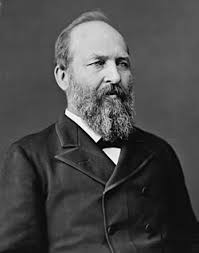
Introduction
James Garfield, the 20th president of the United States, remains a pivotal figure in American history despite his brief time in office. His presidency, lasting only six months before his assassination in 1881, was marked by significant political and social challenges. Understanding Garfield’s contributions and legacy is crucial as they reflect the complexities of the era and the enduring implications of his policies.
Early Life and Political Career
Born on November 19, 1831, in a log cabin in Ohio, Garfield faced many hardships during his early life, which instilled in him a strong work ethic and ambition. He rose from humble beginnings, earning a scholarship to Williams College in Massachusetts, where he excelled academically. His journey into politics began after serving as a Union general during the Civil War, where he became known for his leadership and tactical skills.
Garfield entered the political scene in 1863 when he was elected to the House of Representatives. Over the next 17 years, he championed various issues, including civil rights for African Americans and educational reform. His reputation as a fair and effective leader ultimately led to his nomination as the Republican candidate for president in 1880.
Presidency and Policies
Garfield’s tenure began on March 4, 1881, but was abruptly cut short when he was shot by Charles Guiteau, a disgruntled office-seeker, on July 2 of that year. Garfield’s administration grappled with significant issues such as civil service reform and economic uncertainty. He advocated for merit-based civil service appointments, challenging the existing patronage system that had plagued American politics for decades.
Despite being appointed as president, much of Garfield’s potential was unfulfilled due to his assassin’s actions. He spent several weeks in critical condition before succumbing to his injuries on September 19, 1881. His death catalyzed a national outcry for reform in the civil service, which led to the Pendleton Act of 1883, institutionalizing merit-based appointments.
Conclusion
James Garfield’s legacy is a testament to the enduring fight for a fair and effective government. His brief presidency, characterized by his advocacy for civil service reform and societal progress, has left a lasting imprint on the political landscape of the United States. Although Garfield’s life was tragically cut short, his vision for a more equitable government continues to resonate, reminding us of the importance of integrity and dedication in leadership. As we reflect on his contributions today, Garfield serves as a symbol of perseverance and the quest for justice in American politics.


